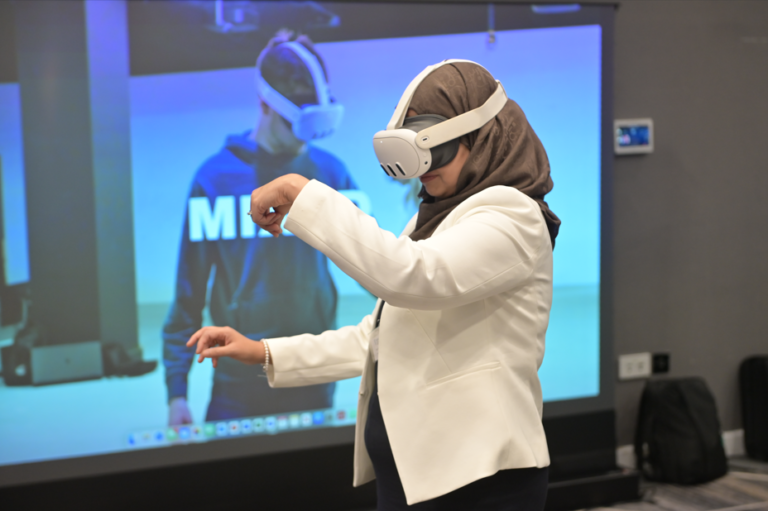The NHS is on an ambitious journey to become the world’s first net zero health service. One exciting initiative contributing to this goal is the Medicines Manufacturing Skills Project, which uses Virtual Reality (VR) technology to reduce carbon emissions and bridge the skills gap in advanced medicines manufacturing.
Launched in April 2023 and funded by Innovate UK, the Resilience project focuses on providing high-value training in STEM skills without the need for physical lab environments. With VR training simulations, the NHS can reduce travel, save resources, and minimize its reliance on single-use materials, directly supporting its mission to achieve net zero emissions by 2040.
How VR Technology Reduces Emissions
The use of VR headsets enables trainees to experience realistic, computer-generated environments that replicate advanced manufacturing facilities. This allows students and professionals to practice essential skills without traveling to labs or consuming expensive materials. According to Professor Ivan Wall of the University of Birmingham, this approach “dramatically reduces the need for travel and cuts down on waste, such as single-use plastics, commonly used in lab training.”
A report from the Faculty of Public Health highlights that NHS-related travel accounts for over 9.5 billion road miles annually, representing 3.5% of all road travel in England. By adopting VR technology, Resilience reduces this footprint by offering virtual training sessions at schools, colleges, and partner universities across the UK.
The Future of VR in NHS Training
Beyond manufacturing, VR in healthcare has the potential to revolutionize medical training and patient consultations, further reducing travel and carbon emissions. Virtual clinics enable healthcare professionals to consult with patients remotely, avoiding unnecessary journeys while still delivering high-quality care.
Professor Wall emphasizes the engaging nature of VR, noting that “young people find it exciting and highly immersive, which helps attract new talent into this vital sector for the UK economy.”
The Medicines Manufacturing Skills Project is a clear example of how technology-driven solutions like virtual reality can support both the NHS’ net zero goals and the development of the next generation of skilled professionals. With its combination of reduced emissions, waste prevention, and high-quality training, VR is set to play a central role in the future of healthcare and medicines manufacturing.





Leave a Reply